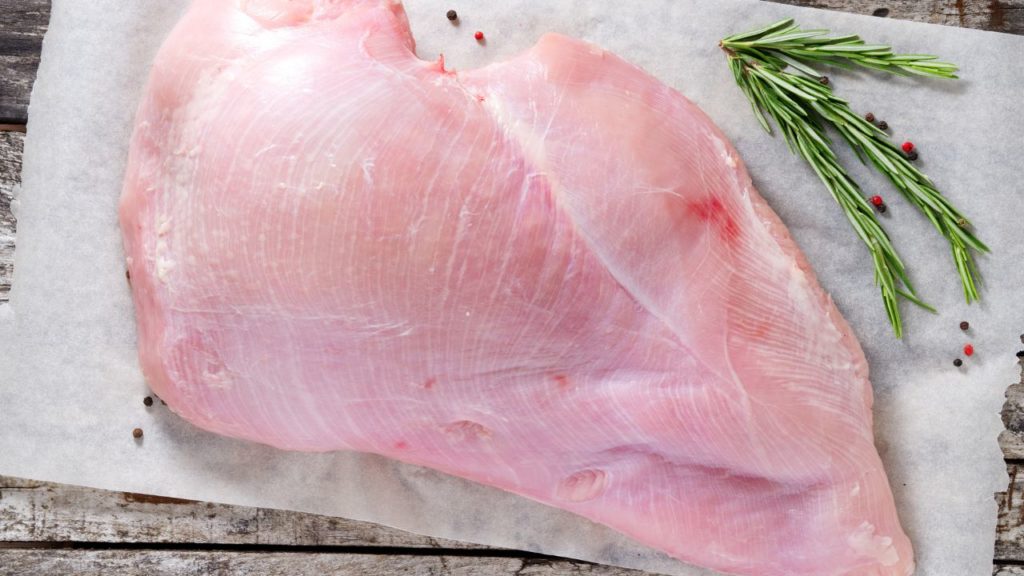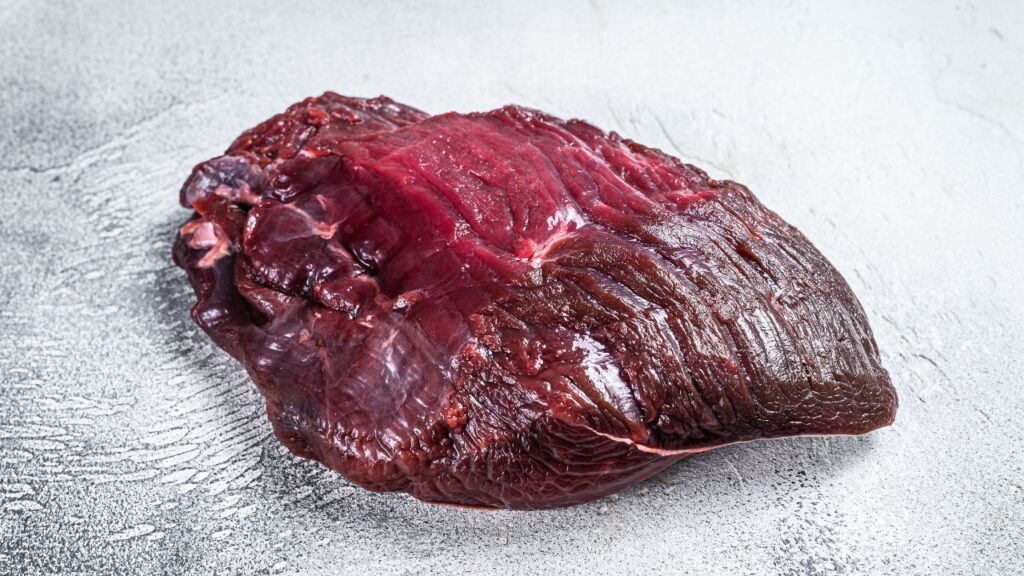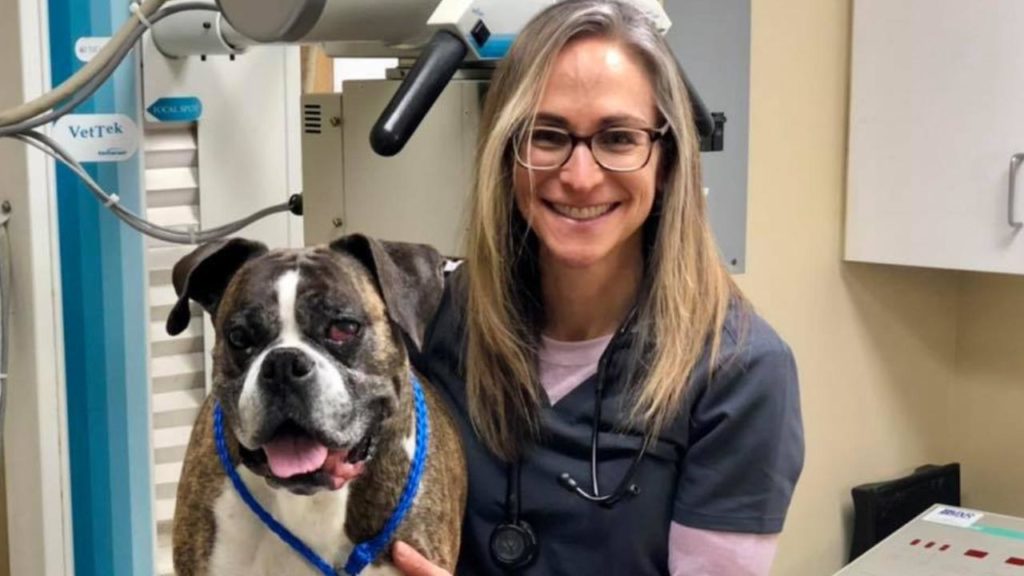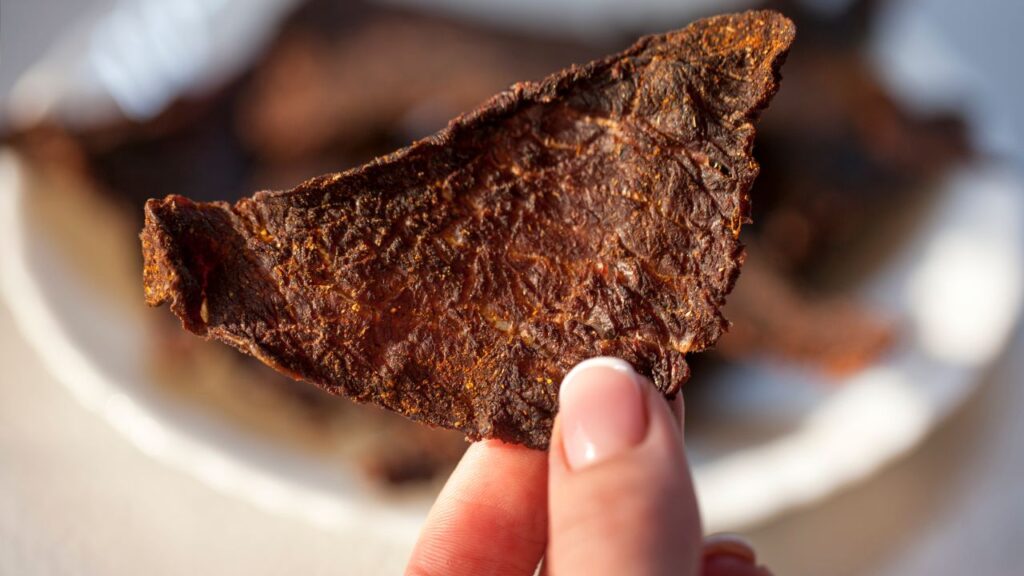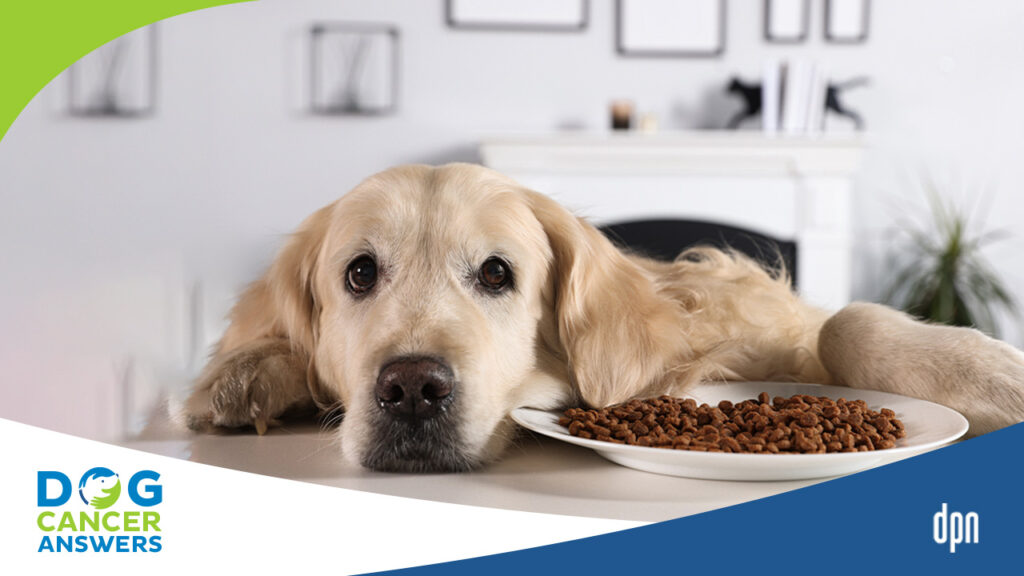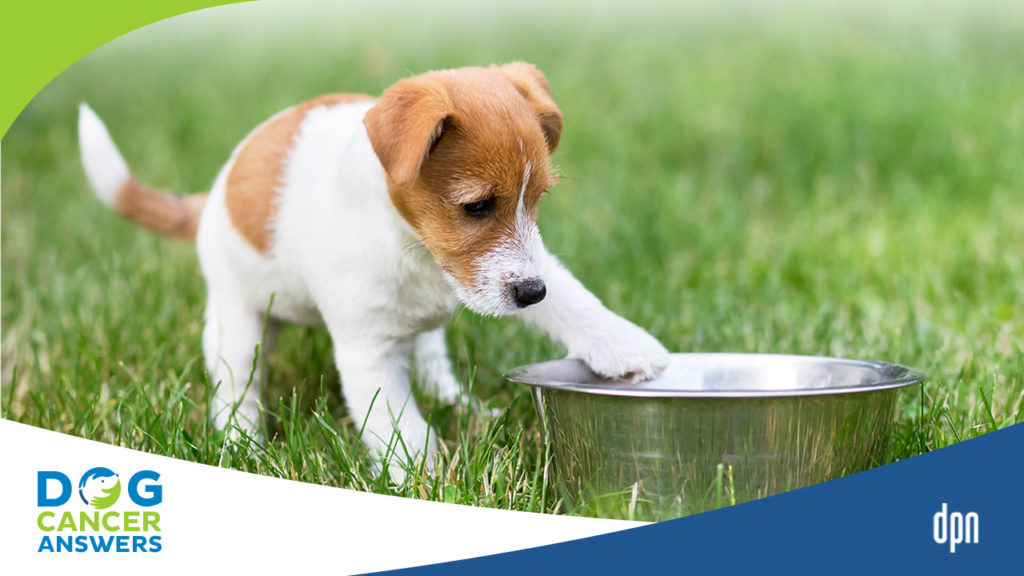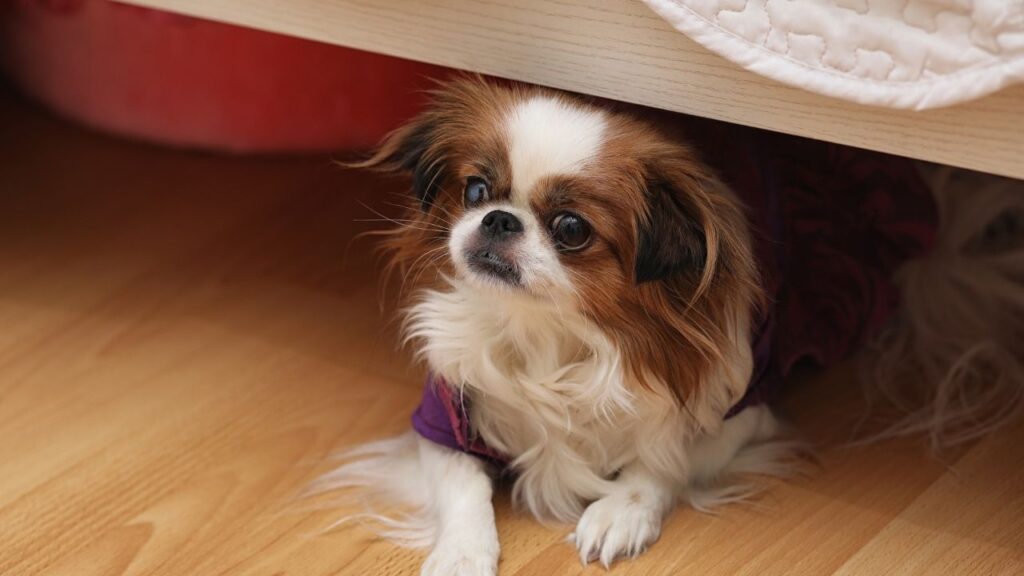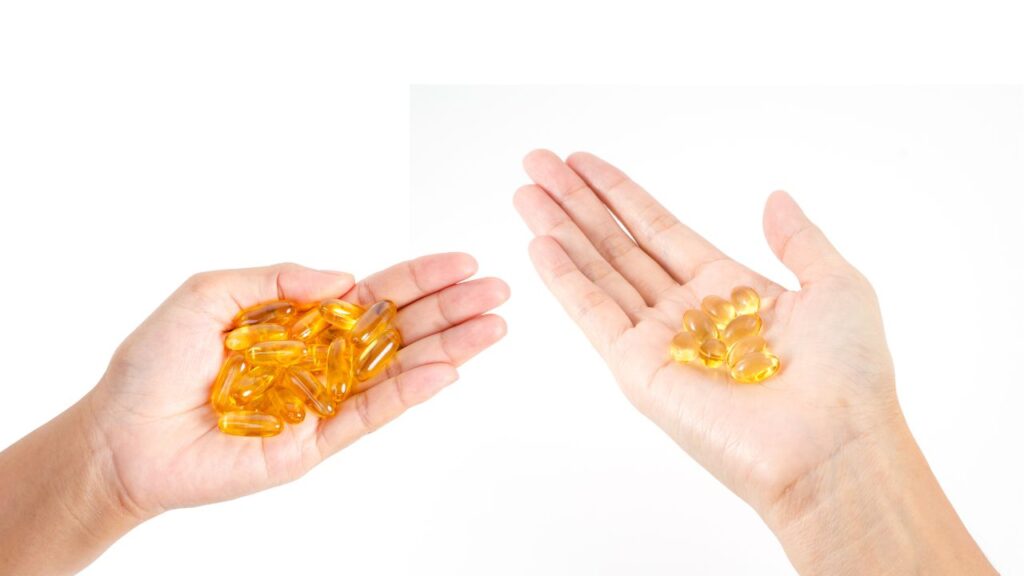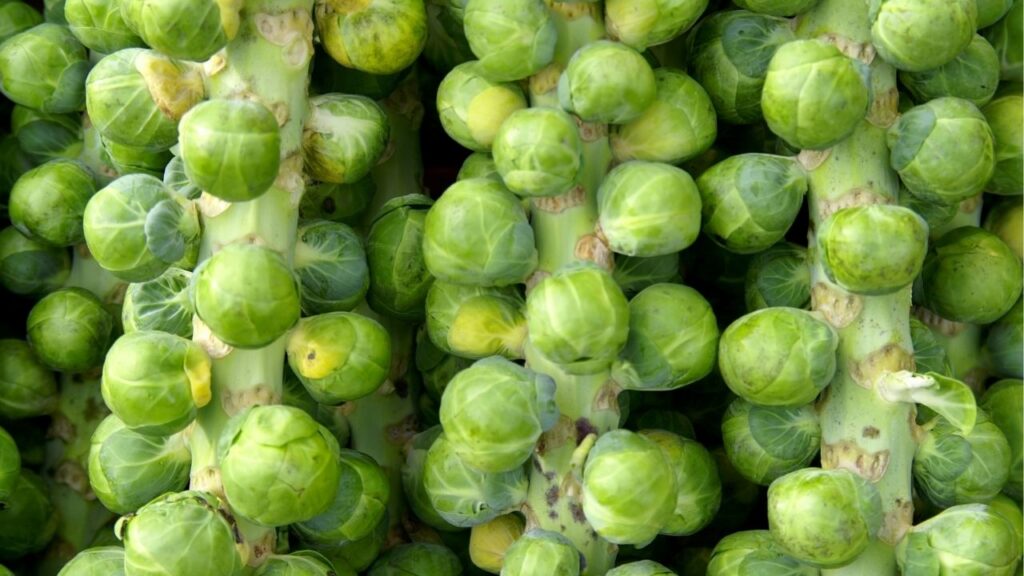Dogs with cancer shouldn’t be deprived of all their favorite treats! In addition to serving as a well-deserved “pick-me-up,” dog cancer treats can help dogs who are struggling to eat due to their cancer or cancer treatment.
Key Takeaways
- Healthy treats that you can give your dog with cancer include broccoli, cooked chicken, apple, and hardboiled eggs.
- Yes, it is OK to give your dog with cancer treats! In fact, treats can be a great boost to your dog’s morale and quality of life.
Treats: Bite-Sized Bits of Joy
Dog cancer treats are nutritious, yummy tidbits you can give your dog with cancer in addition to their regular diet.
Treats are also often used to reward positive behavior and are a popular tool for training. Some treats can also be used to stop natural behaviors, such as chewing, or to promote healthy habits, such as reducing daily tarter build-up with a dental chew.
Warning: Excess Calories Can Sneak In
Treats can fulfill many functions and be a regular component of your dog’s daily routine. But be careful, as too many treats can cause your dog to pack on the pounds.
Obesity Is a Risk Factor for Cancer
Unfortunately, obesity is a risk factor for developing diseases such as cruciate ligament disease, arthritis, and even cancer.1
Despite these risks, the prevalence of obesity in dogs is relatively high. One study reported that over one-third of the dogs seen by U.S. veterinarians were overweight or obese.1
In humans, excess body weight has been linked to higher insulin levels and chronic inflammation, two factors that research studies have connected to an increased likelihood of being diagnosed with certain kinds of cancer.2,3,4
Given the role that these conditions play in developing cancer, they likely play a role in speeding up its growth and invasiveness as well.
So, even if your dog already has cancer, using healthy dog cancer treats and helping your dog achieve a healthy weight is a good idea.
Be Gentle with Yourself!
That said, if you know your dog is overweight, don’t beat yourself up too much. There is a great deal we still don’t know about the link between obesity and cancer risk. For example, one study was unable to find any association between dogs who were overweight or obese and their survival time once diagnosed with lymphoma or osteosarcoma.5 Instead, dogs who were underweight at their diagnosis were more likely to have shorter survival times.
As is so often the case when it comes to cancer research and nutrition, the evidence is conflicting. In general, a healthy weight is a good idea, but more studies are needed to discover the mechanisms in play that contribute to dog cancer.
Also, it’s important to be gentle with yourself about not beating yourself up for what you didn’t know in the past. Many dog lovers just don’t know how to tell if their dog is overweight or not.
Veterinary nutritionist Dr. Lindsey Bullen explains her thoughts on diet and cancer.
Good Rule of Thumb: Limit Treats to 10%
You can easily help limit the risk of your dog becoming overweight by limiting treats to only 10% of their daily caloric needs. Also, choose treats that are low in fat and complementary to your dog’s primary diet.6
Carbs and Cancer
Treats that are low in carbohydrates may be preferable, although the topic of carbs and cancer isn’t simple.
- Cancer cells have an altered metabolism that differs from healthy cells, and they love to feed off carbs.3,4 However, study results on this have been mixed, which makes it difficult to determine exactly how many carbohydrates is too much. More studies will be needed to better define the association between carbohydrate intake and cancer risk and if carbohydrate restriction leads to better outcomes during cancer treatment.7
- According to the Tufts Cummings School of Veterinary Medicine’s Clinical Nutrition Team, no evidence exists that a special diet for canine cancer exists.8
- Dietary recommendations vary from veterinarian to veterinarian, but certain cancers may have specific agreed-upon dietary guidance, such as lymphoma.9
This can be frustrating because many diseases and conditions do have recommended prescription diets.
Our standard advice about food always applies: you’ll want to consult with your veterinarian before you add any new foods or treats to support your dog’s cancer treatment if they are already on one of these specialized diets. A veterinary nutritionist is also a great resource for you.
Choosing Healthy Dog Cancer Treats
So what treats might be good for your dog with cancer?
Safety First
Both cancer and the treatment of cancer will suppress your dog’s immune system. You don’t want to give your dog’s body anything “extra” to fight against, so avoid treats that are more likely to harbor pathogens (harmful substances like bacteria and viruses):
- Skip unprocessed animal parts such as dehydrated tracheas or liver treats.
- Ditch pig ears, which have received a lot of attention due to Salmonella contamination.10
- Note that simply freeze-drying or freezing food products does not kill pathogens like E. coli, so these products may harbor them.
- Any treats, such as meat or an egg, should be cooked all the way through to ensure that any microbes in or on them have been killed.8
You can avoid most of the uncertainty and risk by simply cooking animal products you give your dog.
But animal parts aren’t the only culprits – fruits and vegetables can also harbor dangerous pathogens.8 They can also pose a choking risk if not cut into small enough pieces.11 To help minimize any chance of harm:
- Thoroughly wash any fruits or vegetables you give your dog.11
- Be sure to cut them up into manageably-sized pieces.11
- These small pieces will also help you track how much you give your dog.
Toxic Treats
Remember that some human foods, like avocados, chocolate, and grapes, are toxic to dogs.12 The ASPCA Poison Control website offers resources, including a list of human foods to avoid and an emergency phone number to call if your dog does ingest a dangerous food item.12
Nutrition Expert Dr. Susan Recker reveals which foods are best for dogs with cancer, and most are like treats for our dogs!
Healthy Treats!
Tufts University’s Clinical Nutrition Service recommends giving your dog small portions of these healthy treats:13
- Raw cucumber slices
- Raw or cooked green beans
- Raw or cooked broccoli
- Cooked cauliflower
- Blueberries
- Apples
- Bananas
- Melon
- Canned pumpkin
- Plain non-fat Greek yogurt
- Cooked chicken
- Hard-boiled eggs
You can reference nutritional labels to track carbohydrates,14 but some common go-to low-carb and foods that are safe for dogs include vegetables like cauliflower, broccoli, and bell peppers.
You can also give your dog human baby food that doesn’t have ingredients that are toxic for dogs (like onions, grapes, avocados, etc.), lean cooked meat, and hard-boiled eggs.15
Vegetables can be given fresh or steamed and can even be pureed for easier digestion.15
Some dogs have chewing urges driven by natural instincts, but durable chew treats may not be ideal. Instead, the Clinical Nutrition Team at Tufts recommends giving your dog frozen homemade chicken broth that’s low in salt and sodium or frozen canned food in a rubber toy.14
…But My Dog Hates Healthy Treats
You might be surprised how many fruits and vegetables your dog does like. But if your dog dislikes healthy treat options, don’t force it.
“Cheating” and eating some doggie junk food treats occasionally is not going to harm your dog.
Your pup can enjoy an occasional guilty pleasure as long as their preferred treats are safe for dogs and don’t cause health issues.
The Bottom Line on Dog Cancer Treats
Diet can play a huge role in your dog’s cancer journey. Tailored nutritional strategies can help prevent cancer and support the body during treatment.
However, maintaining your dog’s quality of life may require some compromises and changes along the way. If you can’t be perfect, that’s OK.
Your Dog Needs to Eat
Above all else, a dog with cancer must eat. If your dog struggles with appetite, their regular food might not tempt them. Treats can help to remedy this and get some much-needed calories into their system.
Your dog’s willingness to consume treats can also be a good indicator of their physical state. If your dog stops eating and stops welcoming their favorite treats, then it may be time to make some loving but tough decisions surrounding the end of their cancer journey.
Dr. Susan Recker guides us on how to help our dogs when they have trouble eating.
- Lund EM, Armstrong PJ, Kirk CA, et al. Prevalence and risk factors for obesity in adult dogs from private US veterinary practices. Int J Appl Res Vet Med 2006;4:177–186.
- Clinton SK, Giovannucci EL, Hursting SD. The World Cancer Research Fund/American Institute for Cancer Research Third Expert Report on Diet, Nutrition, Physical Activity, and Cancer: Impact and Future Directions. J Nutr. 2020;150(4):663-671. doi:10.1093/jn/nxz268
- Chandler M, Cunningham S, Lund EM, et al. Obesity and Associated Comorbidities in People and Companion Animals: A One Health Perspective. J Comp Pathol. 2017;156(4):296-309. doi:10.1016/j.jcpa.2017.03.006
- Klement RJ, Kämmerer U. Is there a role for carbohydrate restriction in the treatment and prevention of cancer?. Nutr Metab (Lond). 2011;8:75. doi:10.1186/1743-7075-8-75
- Romano FR, Heinze CR, Barber LG, Mason JB, Freeman LM. Association between Body Condition Score and Cancer Prognosis in Dogs with Lymphoma and Osteosarcoma. J Vet Intern Med. 2016;30(4):1179-1186. doi:10.1111/jvim.13965
- Rigley, C. How many treats can you give your dog during training. Preventive Vet. https://www.preventivevet.com/dogs/how-many-treats-you-can-give-your-dog-during-training Published April 11, 2018. Revised November 21, 2022. Accessed February 27, 2023.
- Haskins C, Cohen J, Kotecha R, Kaiser A. Low Carbohydrate Diets in Cancer Therapeutics: Current Evidence. Front Nutr. 2021;8:662952. doi:10.3389/fnut.2021.662952
- Clinical Nutrition Team. Feeding pets with cancer. Cummings School of Veterinary Medicine, Tufts University. https://vetnutrition.tufts.edu/2017/08/cancer_diet/ Published August 16, 2017. Accessed February 27, 2023.
- Wynn, S. Nutritional alternatives for cancer patients. Veterinary Information Network. https://www.vin.com/doc/?id=3854778&pid=11200. Published November 1, 2005. Revised July 6, 2017. Accessed February 27, 2023.
- Weese, JS. Pet treats… what to look out for. Veterinary Partner. https://veterinarypartner.vin.com/doc/?id=5728050&pid=19239 Published March 11, 2013. Revised July 7, 2022. Accessed February 27, 2023.
- Burke, A. Can dogs eat blueberries? American Kennel Club. https://www.akc.org/expert-advice/nutrition/can-dogs-eat-blueberries/#:~:text=Yes%2C%20dogs%20can%20eat%20blueberries,and%20most%20pups%20love%20them. Published August 25, 2022. Accessed February 27, 2023.
- People foods to avoid feeding your pets. ASPCA Animal Poison Control. https://www.aspca.org/pet-care/animal-poison-control/people-foods-avoid-feeding-your-pets. Accessed February 27, 2023.
- Linder, D. Treat options for dogs and cats without unbalancing their diet. Petfoodology. Clinical Nutrition Service, Cummings School of Veterinary Medicine, Tufts University. https://vetnutrition.tufts.edu/2021/10/treat-options-for-dogs-and-cats-without-unbalancing-their-diet/ Published October 21, 2021. Accessed February 27, 2023.
- Clinical Nutrition Team. What are safe and healthy treats for my pet? Cummings School of Veterinary Medicine, Tufts University. https://vetnutrition.tufts.edu/2016/01/what-are-safe-and-healthy-treats-for-my-pet/ Published January 6, 2016. Accessed February 27, 2023.
- Dressler D, Ettinger S, Jacobson M. Chapter 14. In: The Dog Cancer Survival Guide. Maui Media LLC; 2011.
Topics
Did You Find This Helpful? Share It with Your Pack!
Use the buttons to share what you learned on social media, download a PDF, print this out, or email it to your veterinarian.
